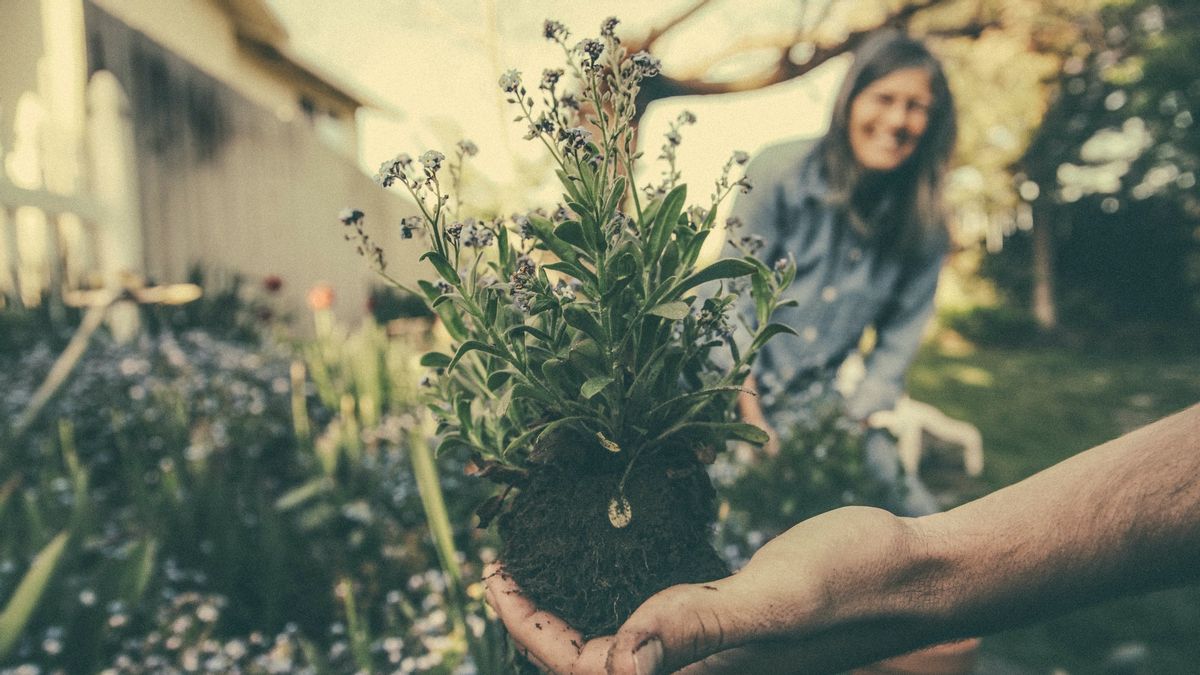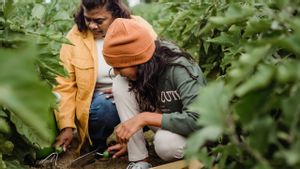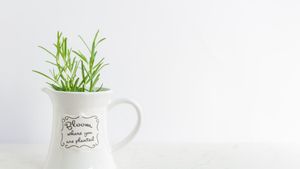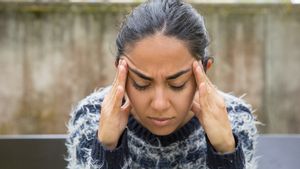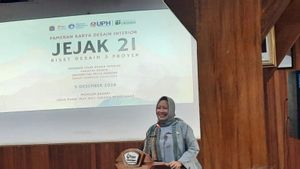JAKARTA - Plant therapy according to various studies can be useful for improving mood. This therapy which focuses on farming activities was initiated by the American Horticultural Therapy Association (AHTA).
Cited from Hillside Atlanta: Healing and Hope for Children and Families, Thursday, March 4, science has proven that interactions with plants can benefit mental and physical health. Both indoor and outdoor plants are equally beneficial.
Amazingly, these benefits can be experienced by all ages and professions. That means gardening and planting can be done to get the following benefits:
Improves mood
A survey conducted at four hospitals in San Francisco found that 79 percent of patients felt more relaxed and calm after spending time in the park. Meanwhile, 19 percent felt more positive, and 25 percent felt refreshed and strong.
Flowers can also evoke positive emotions. These findings were confirmed in a 2005 study that women who received flowers reported more positive moods over the next three days.
Furthermore, elderly patients who received flowers also reported feeling brighter and increased episodic memory.
If you don't have time for gardening, try to place indoor plants that are not as complicated to care for. Because, looking at plants can reduce symptoms of depression and release more happy hormones, serotonin and dopamine.
SEE ALSO:
Significantly reduces stress levels
A study published in the Journal of Health Psychology compared the effects of gardening outdoors and reading indoors. Departing from previous research which states that reading and gardening both reduce cortisol levels.
Follow-up research found that stress levels decreased significantly in gardening activities. Study participants reported enjoying more positive moods after gardening.
Increases attention
In research published in the American Journal of Public Health, it was found that green and natural environments have a positive effect on children with attention deficit hyperactivity disorder (ADHD).
ADHD symptoms in children can significantly decrease compared to other forms of therapy. Gardening also helps children excel, which the American Society for Horticultural Science has researched. The science achievement of children in gardening is higher than that of students studying in class.

Increases self-esteem
Comparing personal life with the lives of others is certainly not wise. But access to social media that is so close to hand is unavoidable. This has a big effect on someone feeling inferior when they see, for example Person A looks happier or looks richer and so on.
Gardening is more positive than accessing, showing off, and comparing with others. Gardening can also be an alternative activity to take a break from increasingly sophisticated technology.
Improves air quality
Beautiful little plants on your desk, classroom, or at home can help clean the air. The majority of city residents spend their time indoors. This means that air pollution can be many times higher outdoors.
Indoor plants, according to scientists who have identified 300 toxins in indoor air, can help air poison compounds evaporate organically.
Studies at Washington State University also found that plants can reduce dust levels by as much as 20 percent. This study confirms that plants can remove particulate matter from the air. Furthermore, plant therapy can have positive benefits on physical health.

Encourages to eat healthily
From research conducted by the Centers for Disease Control and Prevention (CDC) in America, only 1 in 10 people who eat a healthy diet. Gardening can encourage someone to add healthy foods to their dishes.
Gardening can also be escapism to get away from bad eating habits. Through farming activities, parents and children can get food from the plants they plant without worrying about pesticide content.
Again, a study conducted at Saint Louis University found that when families grow the food they eat, a positive environment is created.
The English, Chinese, Japanese, Arabic, and French versions are automatically generated by the AI. So there may still be inaccuracies in translating, please always see Indonesian as our main language. (system supported by DigitalSiber.id)
